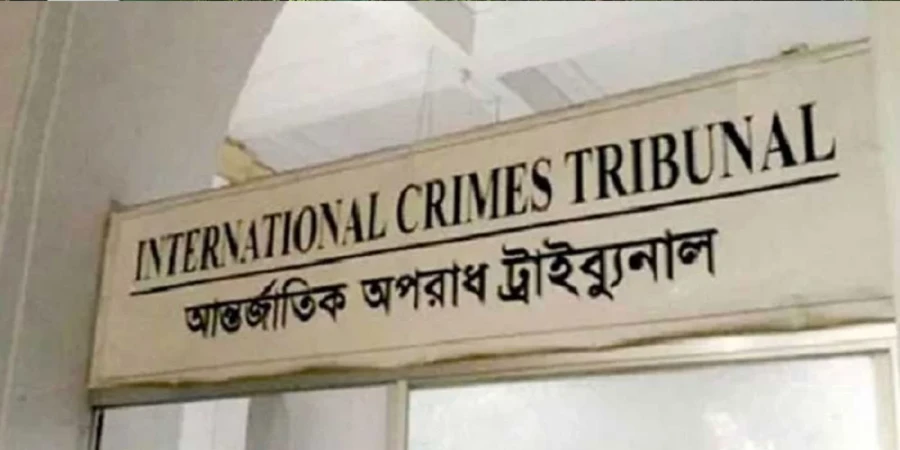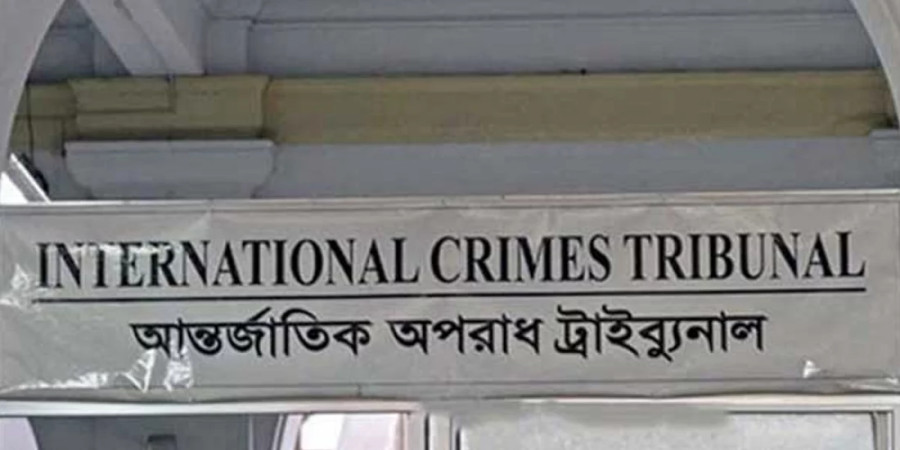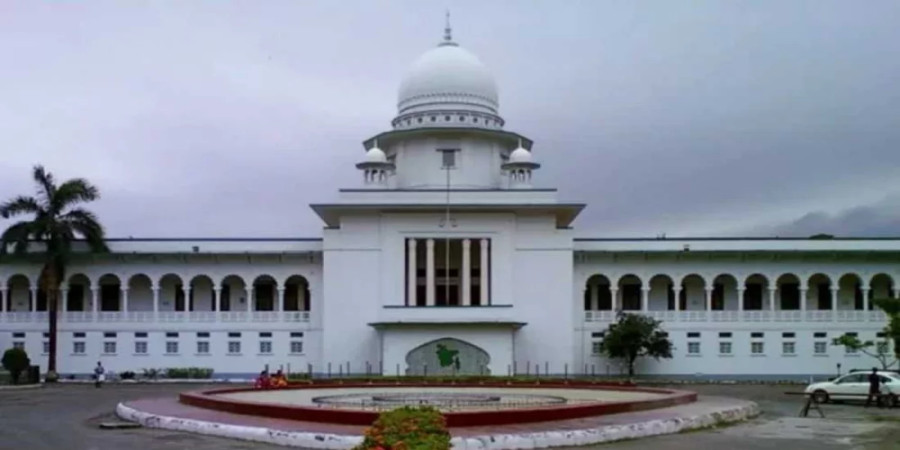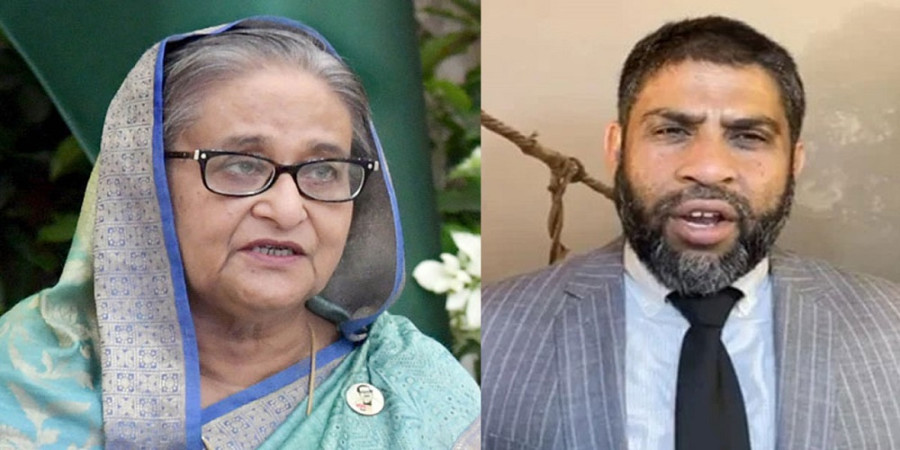
ছবি: Photo: Collected
In a dramatic turn in Bangladesh’s ongoing war crimes investigations, the International Crimes Tribunal (ICT) has sought Interpol’s assistance to arrest ten high-profile leaders, including top figures of the ruling Awami League, for alleged involvement in crimes against humanity committed during the July-August period of unrest. These charges include murder, enforced disappearances, torture, and large-scale violence against civilians.
The Tribunal’s prosecution division revealed in a press conference on Thursday, April 10, that arrest warrants have already been issued in 22 separate cases, targeting a total of 141 individuals. Among them are 10 prominent politicians, including former ministers, advisors, and city mayors. Investigation into four additional cases, including one involving Prime Minister Sheikh Hasina, is reportedly in its final stage.
Chief Prosecutor Md. Tazul Islam emphasized the gravity of the July-August violence and described it as a pivotal moment for justice and accountability in the country’s political history. Speaking during a media briefing held at the Tribunal, he stated that without proper prosecution of those involved, the nation would face a crisis of justice and legitimacy.
Gazee Monowar Hossain Tamim, administrative prosecutor of the Tribunal, stressed the importance of holding trials for those involved, stating that failing to do so would be an unparalleled misfortune and a deep failure of responsibility.
In his analysis, Prosecutor Saimum Reza Talukder explained the legal procedures surrounding investigation, prosecution, and trial under the amended International Crimes Tribunal Act. Tamim drew parallels with similar prosecutions in Sierra Leone, Cambodia, Chad, and Senegal, where top perpetrators of crimes against humanity were brought to justice despite the scale of atrocities being massive and systemic.
In a further development, the Tribunal's investigation agency has sent a formal request to the Inspector General of Police, urging him to initiate the process for Interpol Red Notices against the accused. The list includes:
-
Obaidul Quader, Awami League General Secretary and former Minister
-
Asaduzzaman Khan Kamal, former Home Minister
-
Tarique Ahmed Siddique, former Defense Advisor to the Prime Minister
-
Hasan Mahmud, former Minister
-
Jahangir Kabir Nanak, AL Presidium Member and ex-Minister
-
AKM Mozammel Haque, former Liberation War Minister
-
Sheikh Fazle Noor Taposh, ex-Mayor of Dhaka South City Corporation
-
Mohibul Hasan Chowdhury Nowfel, former Education Minister
-
Md. Ali Arafat, ex-State Minister for Information
-
Nasrul Hamid Bipu, former State Minister for Power and Energy
The prosecution informed that among the 141 accused individuals, 54 have already been arrested while 87 remain at large. The accused include 70 civilians, 62 members of police and RAB, and 9 current or former military personnel. A staggering 1,000 witness statements have already been recorded, providing extensive documentation of alleged atrocities.
Chief Prosecutor Tazul Islam clarified that the Tribunal aims to prosecute both “top commanders” and those who were directly involved in executing orders, particularly in incidents where crimes went beyond superior commands. He referenced international practices, notably in Rwanda and Sierra Leone, where only a few top officials were tried due to the logistical impossibility of trying thousands of lower-ranking personnel.
He stated that those identified as masterminds, planners, or direct perpetrators — including individuals who executed victims at close range or engaged in acts such as desecrating corpses — would be prioritized for prosecution.
Tazul warned that if justice is not selective and strategic, it risks destabilizing institutions like the police and military, which still include officers involved in or connected to the alleged crimes. “We want to stabilize the state, ensure justice for victims, and set a precedent for accountability,” he said.
One of the most startling revelations from the press briefing was related to the discovery of a secret detention facility in the Uttara area of Dhaka, where explosive devices were recovered. This discovery emerged during an investigation into enforced disappearances, specifically relating to individuals allegedly held incommunicado for years.
On January 25, investigators located what was described as the largest clandestine prison in the country. The facility had been used to detain individuals for up to eight years, often in conditions of extreme deprivation. Prisoners were reportedly kept blindfolded and bound, with only limited movement allowed, such as during bathroom breaks.
Based on testimonies from recently released victims, investigators were able to sketch a detailed map of the facility. Upon entering the site, they encountered several sealed and booby-trapped rooms. After drilling through a sealed wall, they discovered three soundproof torture chambers filled with debris and broken furniture, likely placed to deter intrusion.
On the third day of the search, they uncovered a blue bucket containing cotton, bandages, and dust. Beneath this layer, five large bombs wrapped in red tape and connected to timers were discovered. The bomb disposal unit was called in on January 26 and safely detonated the devices the next day. Experts reported that an explosion at the site could have destroyed the entire building.
Tazul Islam declined to reveal further sensitive details but confirmed that the discovery posed a severe threat to investigators. He maintained that the site corroborates testimonies from multiple victims and supports the broader narrative of state-level abuse during the July-August violence.
The Tribunal’s prosecution team includes several senior prosecutors such as Md. Mizanul Islam, Abdus Sobhan Tarafdar, and Abdullah Al Noman, who all participated in the media briefing. They expressed hope that international cooperation and domestic political will would ensure justice for the victims of one of the most violent periods in Bangladesh’s recent history.
With the scale of the investigation expanding and the implications reaching into the highest levels of past government leadership, the developments are expected to have far-reaching consequences on the country’s political landscape and legal system.
repoter





